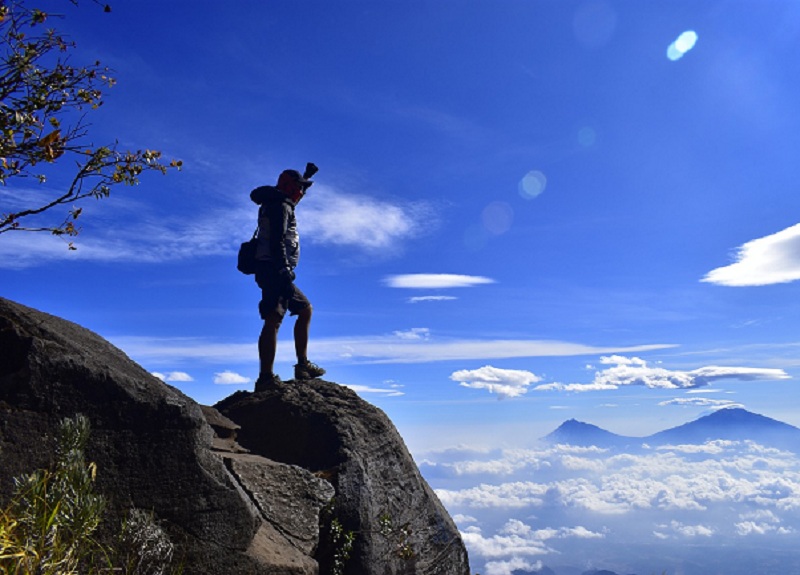
Hiking is something that can be enjoyed by men, women and children of all ages and fitness levels. It gets you outside where you can enjoy your natural surroundings. All while offering a chance to breathe in fresh air, discover nature’s wonders, and get some exercise that will have you feeling motivated and energised.
Regular hiking offers a range of health benefits, from boosting fitness, to improving mental wellbeing and even helping us in our social lives. We’ve listed some of the amazing benefits of hiking below so that next time you’re heading out into the wilderness on a hike, you will not only feel fantastic, but will also know why:
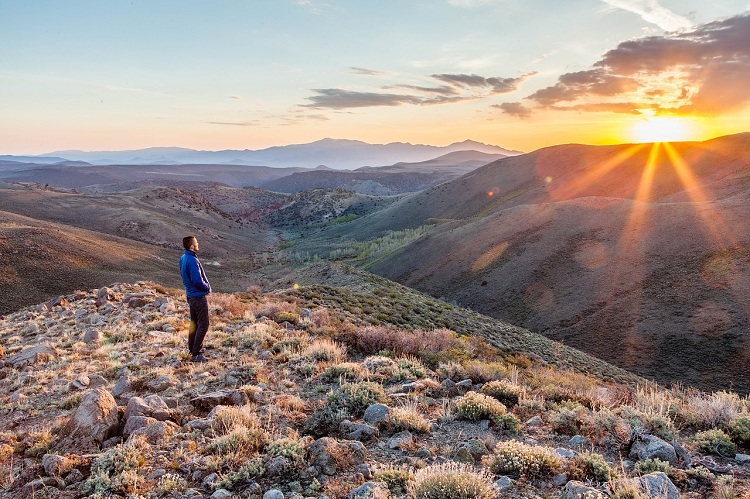
Hiking exposes you to sunlight, effectively supplying your body with Vitamin D which is essential for good health and disease prevention. Vitamin D is created as your body responds to UVB rays, making sun exposure an important part of your health needs. More than this, studies have shown moderate sun exposure has a range of benefits including enhancing mood and energy through the release of endorphins, synchronising important biorhythms that regulate body temperature, helping reset your circadian rhythms, and relieving depression.
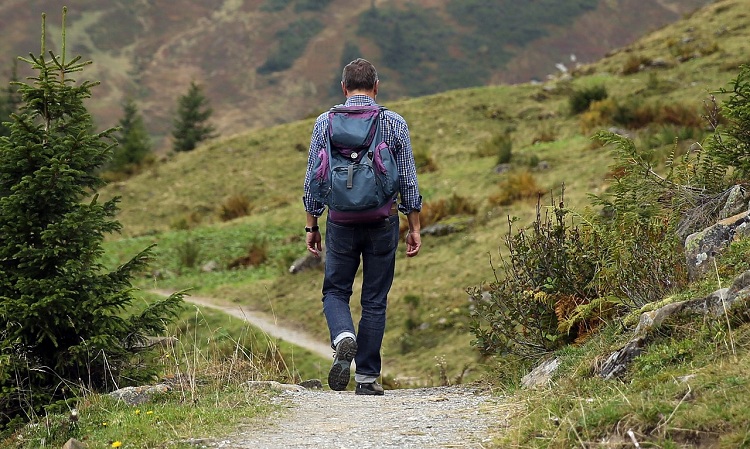
Whether hiking up a mountain trail or along flat country paths, hiking can help you burn hundreds of calories in less than an hour. According to Harvard Health, hiking can easily burn nearly 532 calories per hour. When you consider an hour walking 5kms on the gym treadmill burns only 106 calories, it’s clear that hiking, especially on the hills can crunch calories significantly faster than walking inside your gym.
The reason is because the concrete path that takes you on a stroll around the block is smooth terrain. Similarly, a treadmill is a flat and predictable surface. You can adjust the incline slightly, but it’s still fairly easy to propel your body forward. This lack of a consistent challenge reduces the amount of effort your workout requires, which in turn minimises your overall calorie burn. In hiking, the constantly changing terrain will challenge your body to burn calories faster.
When hiking, your entire body is constantly engaged. You are using your glutes, quadriceps, hamstrings, calves, abdominals, lower back and thighs as you navigate the obstacles of the terrain. Every log you climb over or ditch you jump to avoid is challenging your body in a way that a treadmill never could. Hiking helps tone the muscles while enhancing their elasticity. Needless to add, the biggest beneficiary is the legs, hips, and calves but oblique muscles including those in the neck, shoulder,& arms are also benificiaries of hiking.
A stronger & toned musculoskeletal system and reduced body weight with intense practice on an unpredictable and steep terrain help in improving your body balance. In fact, hiking on uneven terrain increases the amount of energy your body uses by 28% compared to walking on flat ground, as found in a study conducted at the University of Michigan. The varying ground slopes you encounter while hiking also make it different from flat-ground walking. Paths that go up, down and sideways require subtle shifts in the way your leg muscles lengthen or shorten while performing work, and those shifts increase the amount of energy you’re expending during your trek. Navigating uneven ground, whether you’re hiking or trail-running, pulls on different muscles as compared to those you would use on flat, man-made surfaces. Simply put, you’re using and strengthening a lot of muscles in your hips and knees and ankles that you don’t normally use.
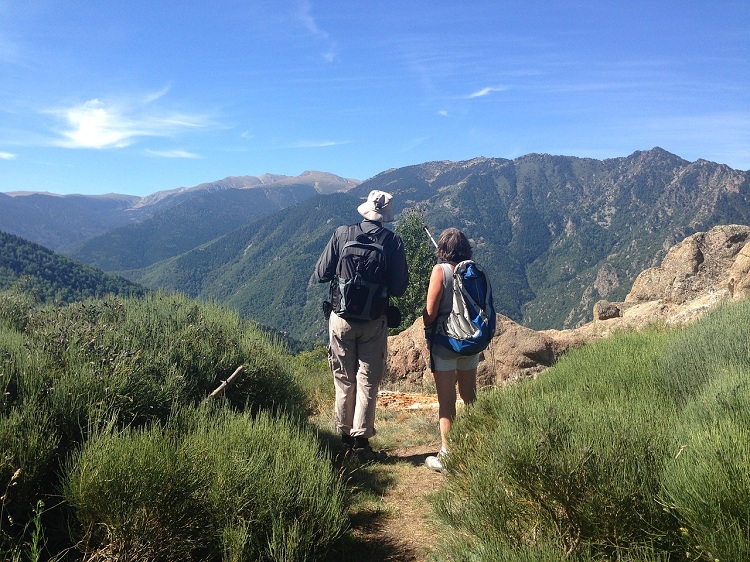
Regular hiking ensures your bone density is increasing and the density loss or osteoporosis is slowing down. If you have arthritis, some health guidelines suggest that upto two and a hald hours of hiking every week will keep your joints flexible and helps stave off the joint stiffness associated with osteoarthritis.
Hiking is particularly benificial for our bones as the mountain trails are comfortable and softer for the feet, ankles, knees, back, and hips as compared to the concrete ground. Carrying a backpack enhances the benefits and works additionally on your upper body strength to build overall body fitness.

Hiking stimulates your brain, your body, and your soul, so it’s no wonder that it takes a lot out of you and helps you to sleep at night. While you hike, no matter how easy a trail you start with at first, your body and mind will be pushed from its comfort zone. The benefits last long after your hike and will reduce adrenaline.
Hiking builds up your body by walking up hills, over rocks, through woods, and on unsteady terrain. While your body is out of its element, compared to the other 12-16 hours you are not hiking, your body pumps adrenaline and spirit until you finish your walk. Once completed, your body moves into rest and recovery mode, making for a good night’s sleep.
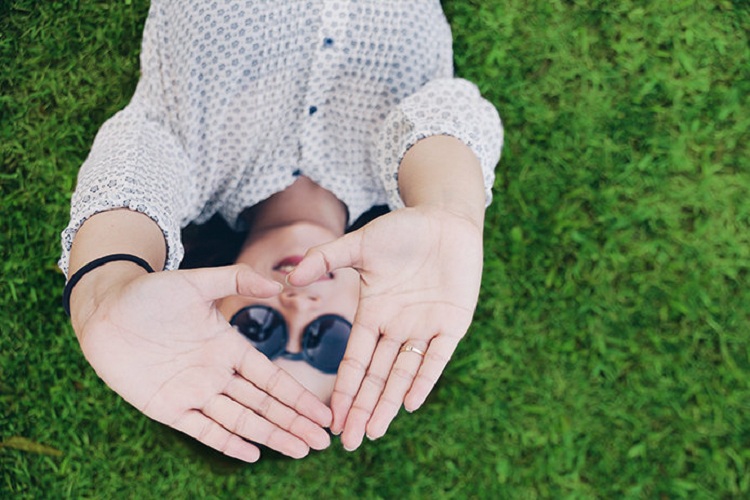
Take a hike to help keep your cardiovascular system in ideal shape. Regular exercise, such as hiking, helps elevate your high-density lipoprotein levels and lower your triglyceride levels. This reduces your risk of heart disease, high blood pressure and stroke. Regular hiking is said to reduce the blood pressure by 10 points and balance the body’s cholesterol & triglycerides levels as well. This helps improve the circulatory system health, thereby reducing the probability of heart attack, cardiovascular pains and more.
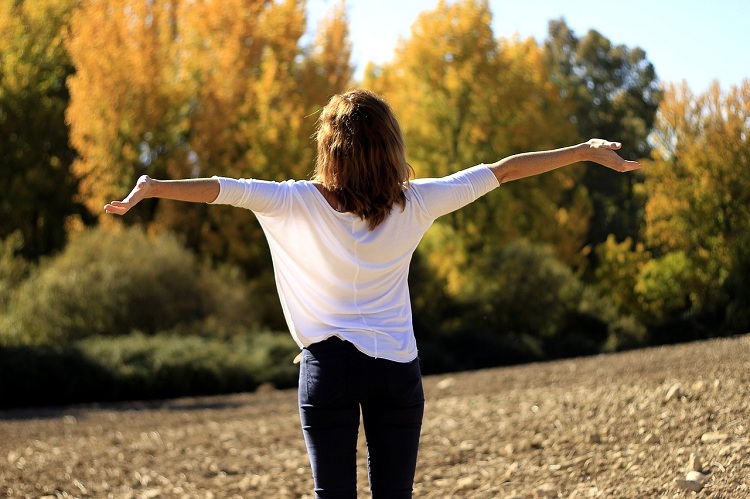
Breath in the fresh unpolluted air on your hike. Aerobic activities such as hiking bring extra oxygen and fuel to your muscles, organs and other body tissues. This extra oxygen and fuel provides a boost that strengthens your muscles and lungs, while increasing your endurance, alertness and energy level.It also reduces risk of stroke, respiratory disorders and more. In addition, the more you breathe fresh air the more active your lungs become, more blood the heart pumps, and healthier it all turns. Use a trekking stick for walking support. Fixing the stick on the ground and pushing your body against it to move further, works on your upper body muscles and heart.
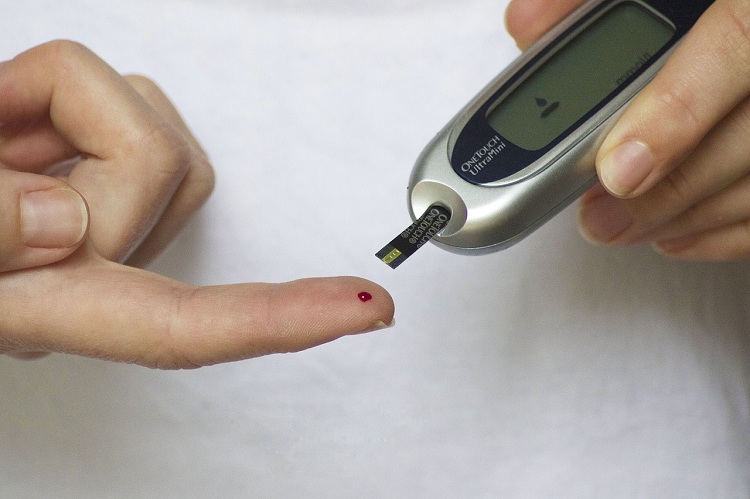
Regular hiking helps you to control, or even prevent, diabetes by lowering your blood sugar levels. Since muscles are intensely working during trekking and hiking, they need energy. The body uses blood sugar to fuel muscle activity. This reduces the excess sugar in the blood, while also increasing the body’s insulin tolerance. In addition, when the blood sugar levels fall inadequate, the body uses its fat reserves to provide energy. Due to intense bodywork for long hours during climbing, initially sugar and then fat fuel up the body. Just remember not to oveexert yourself.

According to a study, hiking can even help the patients fight the deadliest of diseases like colon, breast, lung, and endometrial cancers. The International Journal of Sports Medicine measured the antioxidants levels in the breast cancer patients, before and after hiking. The levels improved after the activity and the higher the antioxidants in the human body, the higher is its capacity to fight infections and catalyzes recuperation. Hiking and trekking are one of the best ‘body-friendly’ activities to increse antioxidants.
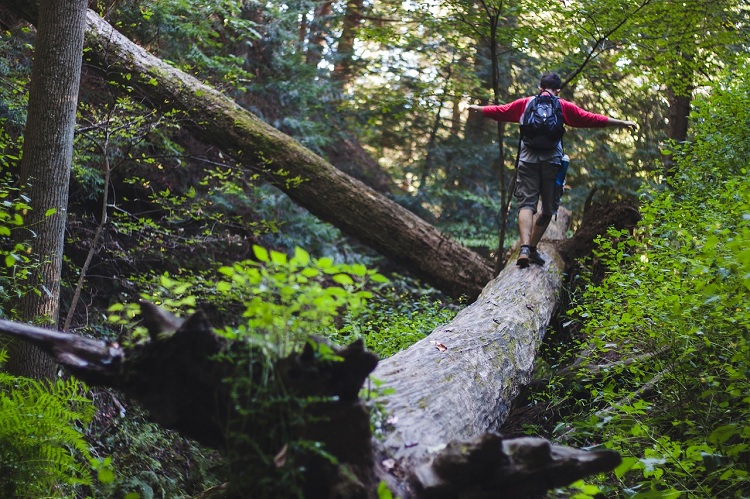
Beginner hikers may trip over roots, fall off rocks, or end up with scratches but through practice, they will master the balance aspect of hiking. It takes some time, and patience to improve this aspect of yourself and Hiking on uneven surfaces helps you master your balance skills. Improved balance also helps in other areas of life, including your posture.
According to Health in Aging, 1 in 3 adults above 65 years of age experience balance-related falls. In seniors 75 and above, the rate increases to 1 in 2. Loss of balance is a major reason for falls, so engaging in activities that improve balance is a must. Pumping up those oft-neglected muscles should improve your balance and stability, which helps protect you from falls. Using those muscles may also knock down your risk for the kinds of overuse injuries—like knee or hip pains, or band issues—that can result from sudden activity.
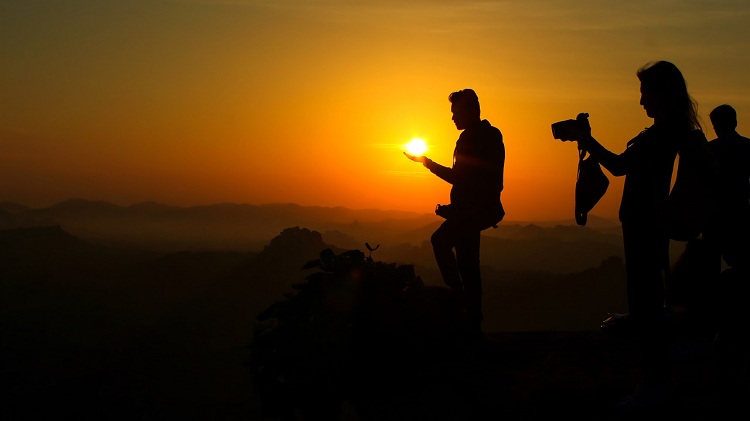
A 2015 study from Stanford University found that time spent in natural environments, as opposed to busy city settings, calmed activity in a part of the brain that research has linked to mental illness. Spending time amidst nature also seems to reduce your mind’s propensity to 'Ruminate', a word psychologists use for negative, self-focused patterns of thought that are linked with anxiety and depression. Hiking also offer social benefits which you learn on your hikes and improves you soft skills. You’ll soon realise hiking involves setting training targets, planning for the trek, organising your schedule, setting goals, learning how to adapt to change, all of which contribute to developing your mental strength.
With a host of hiking related physical benefits, fresh oxygen infusion, positive mental frame due to endorphin hormone, emotional pleasure, social interactions, reduced confusion, anxiety, & anger, increased energy because of adrenaline hormone, and improved life skills, naturally your happiness index is high. Nature can fill your life to the brim. Just give it a chance to take its own course. Make that first effort of going on a hike and change your body, spirit, and life for the better.
Reach out to us using the query form to plan a hike or participate in a hiking tour.